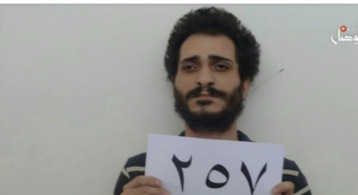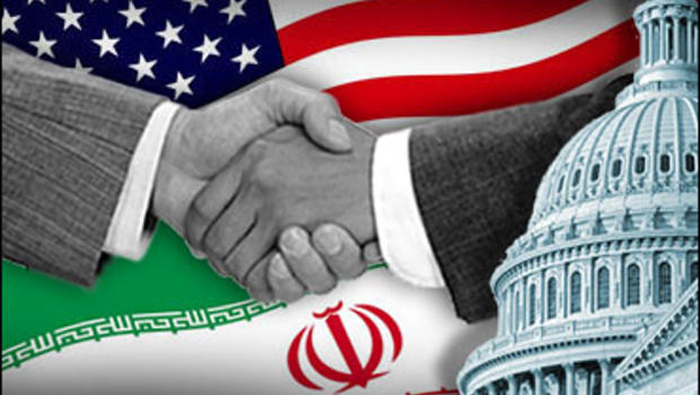-
Shapiro: Israel will destroy Hezbollah's precision missile system

Hezbollah is trying to avoid war with Israel in the region, in conjunction with the deployment of its militias in several areas of Syria and Iraq.
On recent developments between Israel and Hezbollah, US diplomat Daniel Shapiro tweeted: “This week's exchanges between Israel and Hezbollah represent, in some respects, a continuation of a successful policy of deterrence by Israel. But they also likely presage a conflict that -- for all Israel tries to postpone it -- remains inevitable”.
“Since the end of the Second Lebanon War in 2006, Israelis (both strategists and the public at large) have been expecting another eruption of violence on that border. Few would have expected more than 13 years without another full-scale conflict erupting.” He added.
According to Shapiro, there are many reasons the war hasn't come yet. One is the deterrence Israel achieved by the blows it inflicted on Hezbollah in 2006. Despite much criticism in Israel over the war's conduct, it left Hezbollah and its Iranian patrons looking to avoid another round until they were ready.
Israel has also been preparing diligently for the next war, even while seeking to postpone it as long as possible. Major intel advances that identify Hezbollah’s positions throughout Lebanon and led to the detection & destruction of Hezbollah's cross-border tunnels give Israel an upper hand. Shapiro continued.
Shapiro added to the reasons that the development of Israel's US-funded missile defense capabilities, particularly Iron Dome and David's Sling, which it lacked in 2006, render Hezbollah's arsenal less potent than it would otherwise be (while still capable of major damage).
He also talked about Israel's vow that in the next war, it will not spare Lebanese national institutions adds deterrence. Hezbollah, while a proxy of Iran, also operates in a Lebanese political context, and will be cautious of being blamed (by Shia and other sectors) for dragging Lebanon back into a destructive war.
Shapiro continued to list the factors that prevented the war, suggesting that “Chance has also been a factor.” On Jan 2015 Hezbollah border strike, following Israel's elimination of a Hezbollah’s terror cell in the Golan, killed 2 Israeli soldiers. But it could easily have been a dozen, which would've produced an escalation. There may have been similar luck this week. He explained.
And of course, Hezbollah's deployment to Syria in support of Assad's regime over several years of the civil war meant it was less focused on Israel. Has also played a role according to Shapiro, but that is changing as its Syrian operations wind down and Iran intensifies its effort to deploy weapons against Israel from every direction. He adds, the events this week demonstrate Israel's determination to continue to postpone war as long as possible, and minimize Hezbollah and Iran's ability to harm Israel if/when it occurs. In Syria, it means continuing the campaign to stop Iran’s military infrastructure (UAVs, missiles, troops) from taking root.
In Lebanon, it means preventing a large-scale arsenal of precision missiles that could overwhelm Israel's missile defenses and threaten critical targets. Israel's efforts to prevent the import and production of such missiles have kept the numbers manageable. But only for now.
Shapiro praised Israel's success in absorbing Hezbollah's recent strikes without casualties (and responding without triggering an escalation) describing it as “impressive”. The key to this strategy, as he said, was the decoy evacuation of "injured soldiers" to Rambam Hospital, allowing Hezbollah to claim it caused casualties.
Shapiro attributed the reason for Israel's revelation of the decoy operation, that in a democratic country, with a citizen army, the army cannot deceive the public about casualties. The secrecy of operations is understood, but people expect the IDF to be clear about losses, and the IDF adheres to that norm.
In his tweets, Shapiro considers it unclear whether this decoy operation, once revealed, could work well in the coming times, but it is a successful part of a larger strategy to prepare for the next war and postpone it for as long as possible and limit the enemy’s capabilities when that war does break out.
The US diplomat noted that there is a consensus of US and Israeli interests in this regard, where the United States supports Israel's right to defend itself and opposes Iranian threatening policies. Israel's action is a key pushback against Iran's regional aggression. Israel's success, as long as possible without triggering a war, serves US interests very much.
To support this initiative, Shapiro called on Washington to reinforce messages to the Lebanese government and Russia and indirectly to Iran, reaffirming the dangers posed by reckless actions by Hezbollah and Iran against the Lebanese state and people, adding that coordination in US-Israel intelligence operations can also help avoid escalation and manage them if they occur.
You May Also Like
Popular Posts
Caricature
BENEFIT Sponsors Gulf Uni...
- April 17, 2025
BENEFIT, the Kingdom’s innovator and leading company in Fintech and electronic financial transactions service, has announced its sponsorship of the “Innovation and Sustainable Technology Solutions Competition (GU - IST Solutions), hosted by Gulf University at its main campus.
This strategic sponsorship reflects BENEFIT’s active role in advancing technological innovation and fostering sustainable solutions to future challenges. It also seeks to empower Bahraini youth by enhancing their skills, capabilities, and competitiveness in innovation and solution development—contributing meaningfully to the broader goals of sustainable development across all sectors.
As part of BENEFIT’s active involvement in the competition, the company has announced that Hanan Abdulla Hasan, Senior Manager of Public Relations and Communication, will serve on the competition’s supervisory committee. Her upcoming participation reflects BENEFIT’s forward-looking commitment to championing academic and professional excellence.
Commenting on the occasion, Hanan Abdulla Hasan, Senior Manager of Public Relations and Communication at BENEFIT, said, “We are privileged to support this pioneering initiative, which aligns seamlessly with BENEFIT’s enduring commitment to fostering innovation and nurturing the potential of Bahrain’s youth. Our participation is rooted in a deep sense of social responsibility and a firm belief in the pivotal role of innovation in shaping a sustainable future. Through such platforms, we seek to empower the next generation with the knowledge, skills, and foresight required to develop impactful solutions that address future challenges, in line with the United Nations Sustainable Development Goals 2030.”
Dr. Aseel Al Ayash Dean of the College of Engineering in Gulf University commented, “We extend our sincere gratitude to BENEFIT for their generous sponsorship and support of the Innovation and Sustainable Technology Solutions Competition. This contribution plays an instrumental role in helping us achieve the strategic goals of this initiative, namely, cultivating a culture of innovation and sustainability, encouraging efforts that address the imperatives of sustainable development, and enhancing the practical and professional capabilities of our students and participants.”
The event will bring together a diverse spectrum of participants, including secondary school students, university undergraduates, engineers, industry professionals, entrepreneurs, academic researchers, and subject matter experts representing a wide range of disciplines.
The competition seeks to inspire participants to develop and present innovative, sustainable technologies aimed at addressing pressing environmental, social, and economic challenges. It encourages the formulation of business models that integrate advanced technological solutions with core principles of sustainability. Moreover, it serves as a platform for emerging leaders, entrepreneurs, and innovators to contribute to the advancement of the Sustainable Development Goals, promote the ethos of responsible technology, and demonstrate its transformative potential across various sectors.
Attendees will have the opportunity to view a series of project presentations submitted by participants, covering diverse areas such as eco-friendly product design, smart and sustainable innovations, renewable energy technologies, water conservation and management, waste minimisation and recycling, green architectural solutions, and sustainable transportation systems. Outstanding projects will be formally recognised and awarded at the conclusion of the event.
opinion
Report
ads
Newsletter
Subscribe to our mailing list to get the new updates!





















